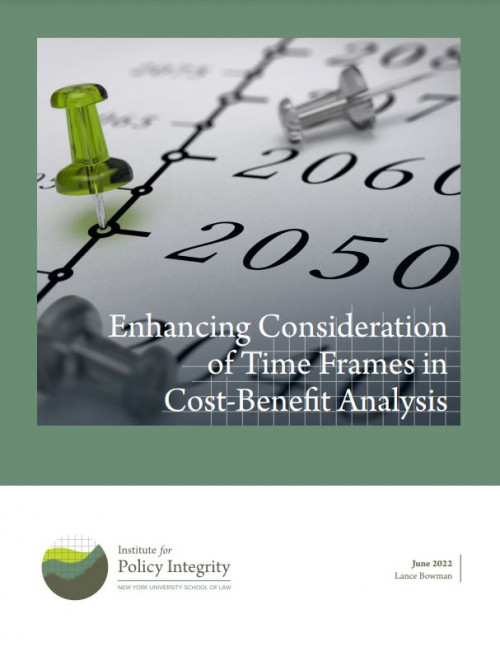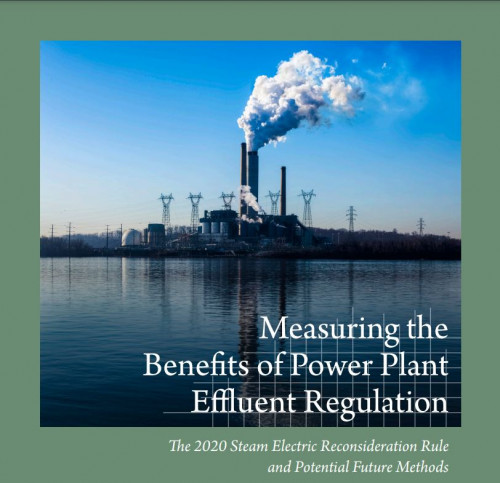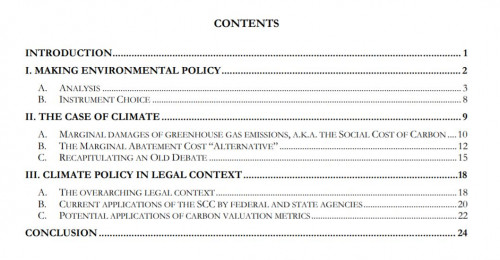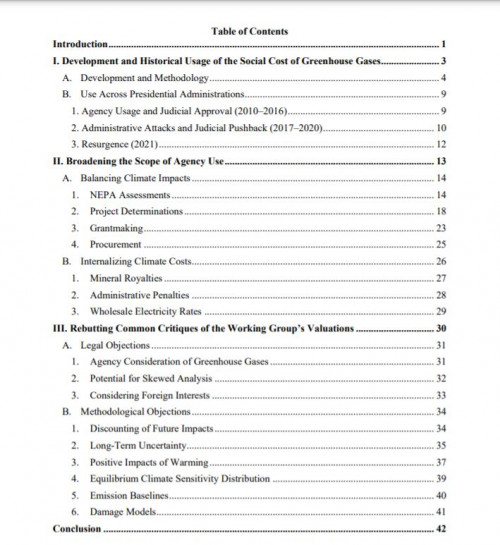The Institute for Policy Integrity produces a variety of publications. Our research reports develop in-depth research on our core issues, while our policy briefs and issue briefs provide focused analysis on more timely or particular topics. Our academic articles and working papers offer original scholarly research and analysis from established experts as well as fresh new voices.
Latest Publications
-
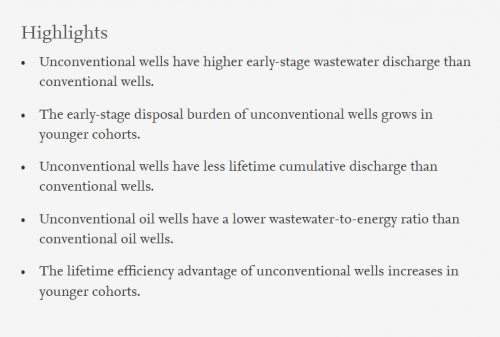
Does Unconventional Energy Extraction Generate More Wastewater? A Lifetime Perspective
Published in Ecological Economics
The paper analyzes how wastewater generation patterns differ between unconventional wells and conventional wells, accounting for differences in well configurations and local geology. Using the 2008–2016 monthly production data from 50,039 wells, the authors show that unconventional wells generated more wastewater in the first 12 months of production but less cumulative discharge than conventional wells. Unconventional oil wells had a lower wastewater-to-energy ratio throughout their lifetime than their conventional counterparts, whereas no efficiency gap existed among gas wells. These findings call for targeted strategies to balance the short-term disposal burden and the long-term efficiency gains of unconventional energy extraction.
-
Enhancing Consideration of Time Frames in Cost-Benefit Analysis
Federal agencies frequently provide no justification for their analytical time frame when analyzing the costs and benefits of a policy. This is true even when there are costs and benefits that clearly occur beyond the time frame chosen by the agency. In so doing, agencies risk overlooking key long-term impacts that may justify more stringent regulation.
This report argues that the Office of Management and Budget (OMB) should take steps to improve how agencies consider analytical time frames in their cost-benefit analyses.
-
Measuring the Benefits of Power Plant Effluent Regulation
The 2020 Steam Electric Reconsideration Rule and Potential Future Methods
EPA is considering regulations that would clean up the wastewater discharges from power plants, after they were stalled and then rolled back under the Trump administration. As it conducts that analysis, this report urges EPA to provide a robust assessment of the benefits of the regulation, improving on analysis that was conducted in the Obama era. The report reviews the economic framework, literature, and analyses performed to support both the original Obama-era rule and Trump-era revisions, building on Davis Noll and Rothschild (2021), which detailed numerous impacts of the 2020 Rule that EPA neglected to examine. This review highlights key considerations that will strengthen future regulations.
-
Costs, Confusion, and Climate Change
Yale Journal on Regulation
Recently, some prominent public policy experts and scholars have proposed that a “marginal abatement cost” (MAC) could be used as an alternative to the social cost of carbon (SCC). This article provides conceptual clarity about these metrics, focusing on how a MAC-based threshold could sensibly be used in climate policy, and explaining why it is not a substitute for the SCC.
-
The Social Cost of Greenhouse Gases: Legal, Economic, and Institutional Perspective
Yale Journal on Regulation
The social cost of greenhouse gases provides the best available method to quantify and monetize incremental climate damages. To date, however, the use of the method for such determinations and processes has been sporadic and fairly limited. Published in the Yale Journal on Regulation, this article evaluates the various legal, economic, and institutional controversies surrounding the social cost of greenhouse gases, and explains why this metric should play a critical role in guiding agency policymaking and decision-making related to climate change.

